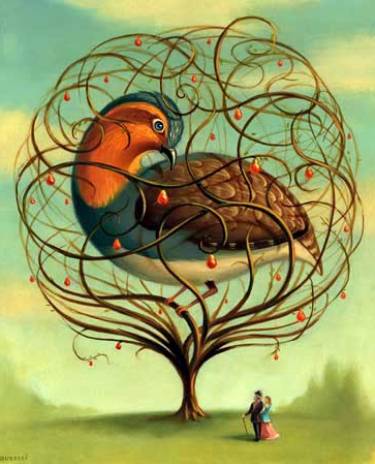
Volume XI, Issue I
The Epiphany, It is Important
The traditional celebration of Christmas lasts for twelve days. It begins on Christmas Day with the celebration of the birth of the Redeemer and ends on Epiphany, which celebrates Christ's revelation to the gentiles. The MAGI, or the Wise Men came from Persia seeking a prophesied King. It is very likely that these were men who had studied the writings of Daniel and now saw the signs of the fulfillment of things he had written: "And the kingdom and dominion, and the greatness of the kingdom under the whole heaven, shall be given to the people of the saints of the most High, whose kingdom is an everlasting kingdom, and all dominions shall serve and obey him." -- Daniel 7: 27
The revelation of Christ to the Gentiles also fulfills a promise made to Abraham: "By myself have I sworn, saith the Lord, for because thou hast done this thing, and hast not withheld thy son, thine only son:
That in blessing I will bless thee, and in multiplying I will multiply thy seed as the stars of the heaven, and as the sand which is upon the sea shore; and thy seed shall possess the gate of his enemies;
And in thy seed shall all the nations of the earth be blessed; because thou hast obeyed my voice." -- Genesis 22:16-18

"Partridge."
I always assumed the song: "The Twelve Days of Christmas" to be a simple frivolous song of celebration. Not so!, this song is instructive in basic truths of the Christian Faith! Here is the explanation by Father Edward Dowling:
The Twelve Days of Christmas” celebrates the official Christmas season which starts liturgically on Christmas Day and ends twelve days later on the Feast of the Epiphany. “My true love” refers to God, “me” is the individual Catholic. The “twelve lords a leaping” are the twelve basic beliefs of the Catholic Church as outlined in the Apostles Creed. The “eleven pipers piping” are the eleven Apostles who remained faithful after the treachery of Judas. The “ten ladies dancing” are the Ten Commandments. The “nine drummers drumming” are the nine choirs of angels which in those days of class distinction were thought important (or the Nine Fruits of the Holy Spirit) [click to read]. The “eight maids a milking” are the Eight Beatitudes. The “seven swans a swimming” are the Seven Sacraments (or the Seven Gifts of the Holy Spirit) [click to read]. The “six geese a laying” are the Six Commandments of the Church or the six days of creation. The “five golden rings” are the first five books of the Old Testament called the Torah which are generally considered the most sacred and important of all the Old Testament. The “four calling birds” are the Four Gospels. The “three French hens” are the Three Persons in God or the three gifts of the Wise Men. The “two turtle doves” represent the two natures in Jesus: human and divine or the two Testaments, Old and New. The “partridge” is the piece de resistance, Jesus himself, and the “pear tree” is the Cross."
Here is More Historical Background [click to read] from Father Dowling. h/t Kristina Elaine Riley Greer
The 'Old New Land'
Friedrich spoke thickly. "Don't you think, Mr. Kingscourt, that people would be much better if they were better off?"
No! If I believed that, I should not be going off to my lonely island; I should have stayed in the midst of humanity. I should have told them how to better themselves. They needn't wait to begin. Not a thousand years, not a hundred, not even fifty. Today! With the ideas, knowledge, and facilities that humanity possesses on this 31st day of December, 1902, it could save itself. No philosopher's stone, no dirigible airship is needed. Everything needful for the making of a better world exists already. And do you know, man, who could show the way? You! You Jews! Just because you're so badly off. You've nothing to lose. You could make the experimental land for humanity. Over yonder, where we were, you could create a new commonwealth. On that ancient soil, Old-New-Land!"
Friedrich heard Kingscourt's words only in a dream. He had fallen asleep. And, dreaming, he sailed through the Red Sea to meet the future."
-- Theodor Herzl, Altneuland (1902) [click to read]
Inspired by Herzl's visionary novel, we present a visionary work for the Twenty-first Century: Pontifus [click to read]...
